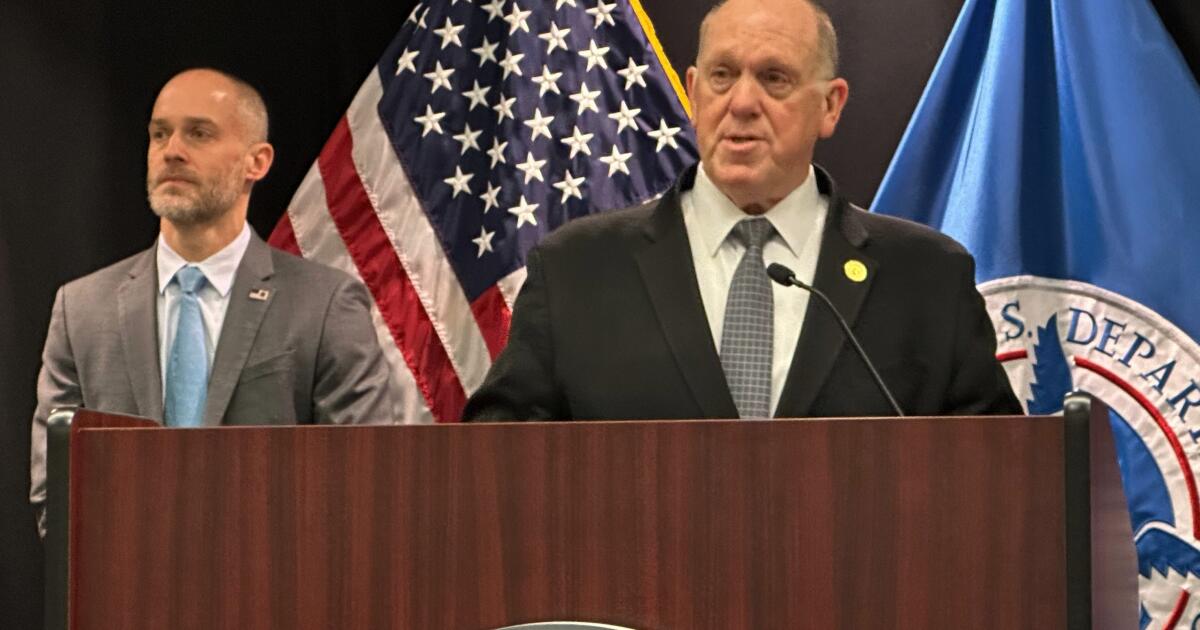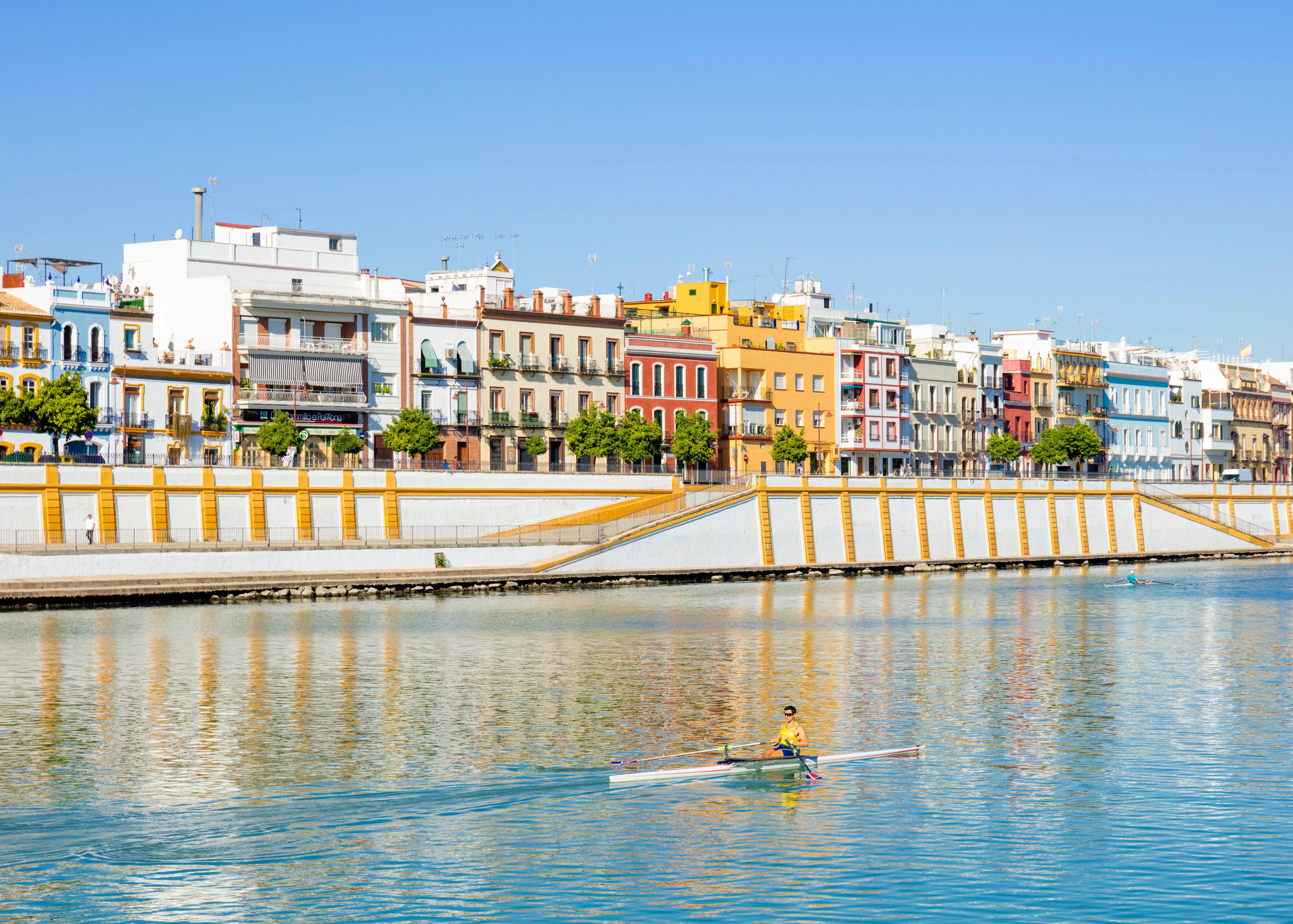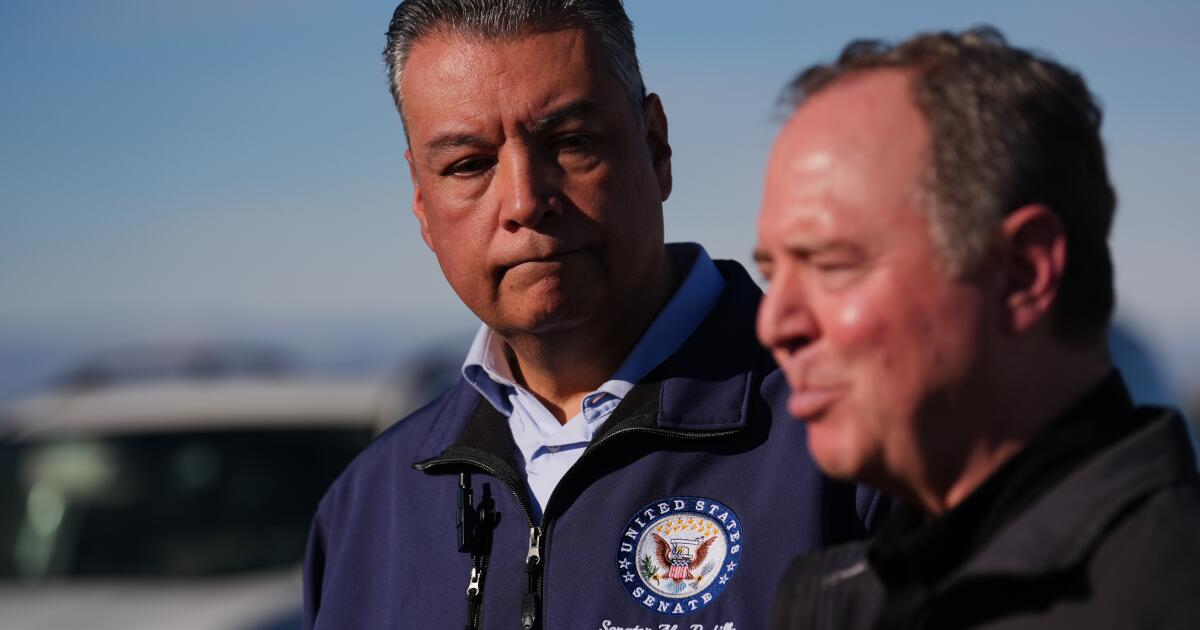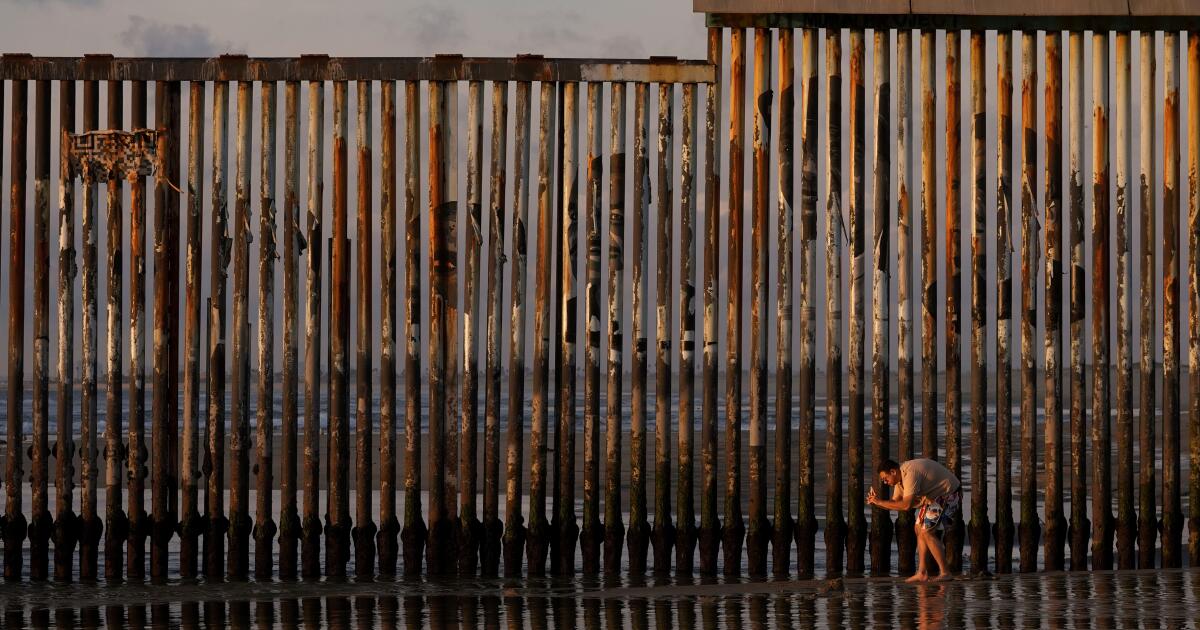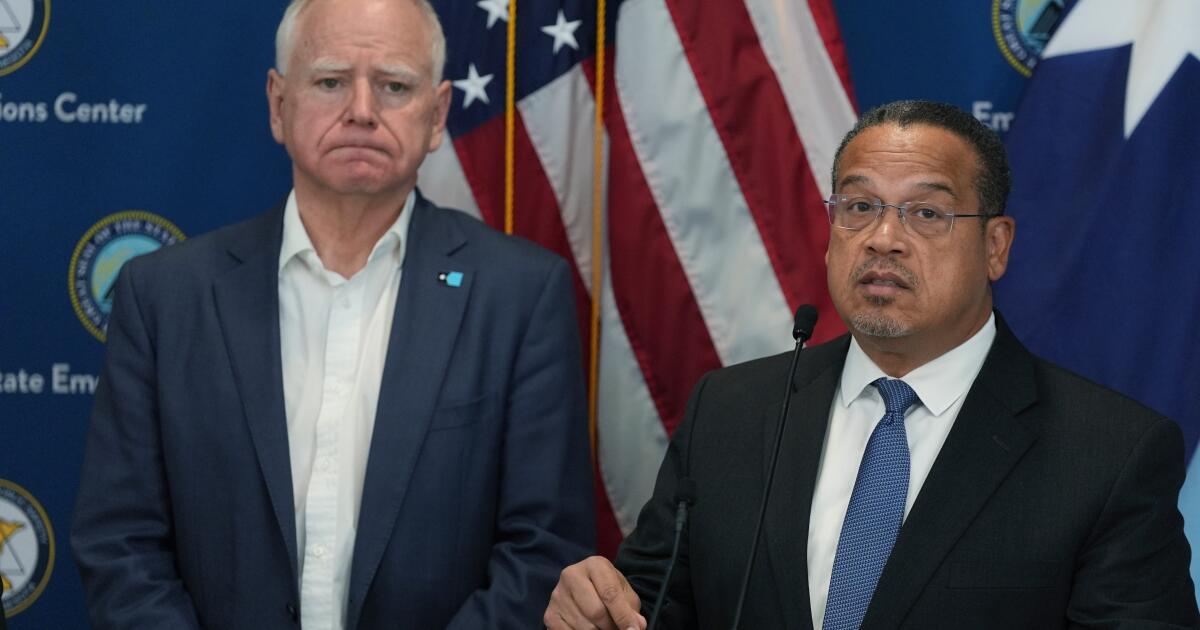California Democrats have assumed leading roles in their party’s counter-offensive to the Trump administration’s massive immigration crackdown — seizing on a growing sense, shared by some Republicans, that the campaign has gotten so out of hand that the political winds have shifted heavily in their favor.
They stalled Department of Homeland Security funding in the Senate and pushed the impeachment of Secretary Kristi Noem in the House. They strategized against a threatened move by President Trump to invoke the Insurrection Act and challenged administration policies and street tactics in federal court. And they have shown up in Minneapolis to express outrage and demanded Department of Justice records following two fatal shootings of U.S. citizens there.
The push comes at an extremely tense moment, as Minneapolis and the nation reel from the fatal weekend shooting of Alex Pretti, and served as an impetus for a spending deal reached late Thursday between Senate Democrats and the White House to avert another partial government shutdown. The compromise would allow lawmakers to fund large parts of the federal government while giving them more time to negotiate new restrictions for immigration agents.
“This is probably one of the few windows on immigration specifically where Democrats find themselves on offense,” said Mike Madrid, a California Republican political consultant. “It is a rare and extraordinary moment.”
Both of the state’s Democratic senators, Adam Schiff and Alex Padilla, came out in staunch opposition to the latest Homeland Security funding measure in Congress, vowing to block it unless the administration scales back its street operations and reins in masked agents who have killed Americans in multiple shootings, clashed with protestors and provoked communities with aggressive tactics.
Under the agreement reached Thursday, the Department of Homeland Security will be funded for two weeks — a period of time that in theory will allow lawmakers to negotiate guardrails for the federal agency. The measure still will need to be approved by the House, though it is not clear when they will hold a vote — meaning a short shutdown still could occur even if the Senate deal is accepted.
Padilla negotiated with the White House to separate the controversial measures in question — to provide $64.4 billion for Homeland Security and $10 billion specifically for U.S. Immigration and Customs Enforcement — from a broader spending package that also funds the Pentagon, the State Department and health, education and transportation agencies.
Senate Democrats vowed to not give more money to federal immigration agencies, including ICE and Customs and Border Protection, unless Republicans agree to require agents to wear body cameras, take off masks during operations and stop making arrests and searching homes without judicial warrants. All Senate Democrats and seven Senate Republicans blocked passage of the broader spending package earlier Thursday.
“Anything short of meaningful, enforceable reforms for Trump’s out-of-control ICE and CBP is a non-starter,” Padilla said in a statement after the earlier vote. “We need real oversight, accountability and enforcement for both the agents on the ground and the leaders giving them their orders. I will not vote for anything less.”
Neither Padilla nor Schiff immediately responded to requests for comment on the deal late Thursday.
Even if Democrats block Homeland Security funding after the two-week deal expires, immigration operations would not stop. That’s because ICE received $75 billion under the One Big Beautiful Bill Act last year — part of an unprecedented $178 billion provided to Homeland Security through the mega-bill.
Trump said Thursday he was working “in a very bipartisan way” to reach a compromise on the funding package. “Hopefully we won’t have a shutdown, we are working on that right now,” he said. “I think we are getting close. I don’t think Democrats want to see it either.”
The administration has eased its tone and admitted mistakes in its immigration enforcement campaign since Pretti’s killing, but hasn’t backed down completely or paused operations in Minneapolis, as critics demanded.
This week Padilla and Schiff joined other Democrats on the Senate Judiciary Committee in calling on the Justice Department to open a civil rights investigation into the fatal shooting of Renee Nicole Good by immigration agents in Minneapolis. In a letter addressed to Assistant Atty. Gen. for Civil Rights Harmeet Dhillon, they questioned her office’s decision to forgo an investigation, saying it reflected a trend of “ignoring the enforcement of civil rights laws in favor of carrying out President Trump’s political agenda.”
Dhillon did not respond to a request for comment. Deputy Atty. Gen. Todd Blanche said there is “currently no basis” for such an investigation.
Schiff also has been busy preparing his party for any move by Trump to invoke the Insurrection Act, which would give the president broad authority to deploy military troops into American cities. Trump has threatened to take that move, which would mark a dramatic escalation of his immigration campaign.
A spokesperson confirmed to The Times that Schiff briefed fellow Democrats during a caucus lunch Wednesday on potential strategies for combating such a move.
“President Trump and his allies have been clear and intentional in laying the groundwork to invoke the Insurrection Act without justification and could exploit the very chaos that he has fueled in places like Minneapolis as the pretext to do so,” Schiff said in a statement. “Whether he does so in connection with immigration enforcement or to intimidate voters during the midterm elections, we must not be caught flat-footed if he takes such an extreme step to deploy troops to police our streets.”
Meanwhile, Rep. Robert Garcia of Long Beach, the ranking Democrat on the House Oversight Committee, announced he will serve as one of three Democrats leading an impeachment inquiry into Noem, whom Democrats have blasted for allowing and excusing violence by agents in Minneapolis and other cities.
Garcia called the shootings of Good and Pretti “horrific and shocking,” so much so that even some Republicans are acknowledging the “severity of what happened” — creating an opening for Noem’s impeachment.
“It’s unacceptable what’s happening right now, and Noem is at the top of this agency that’s completely rogue,” he said Thursday. “People are being killed on the streets.”
Rep. Ro Khanna (D-Fremont) went to Minneapolis this week to talk to residents and protesters about the administration’s presence in their city, which he denounced as unconstitutional and violent.
California Atty. Gen. Rob Bonta has gone after a slew of Trump immigration policies both in California and across the country — including by backing a lawsuit challenging immigration deployments in the Twin Cities, and joining in a letter to U.S. Atty. Gen. Pam Bondi denouncing the administration’s attempts to “exploit the situation in Minnesota” by demanding local leaders turn over state voter data in exchange for federal agents leaving.
California’s leaders are far from alone in pressing hard for big changes.
Cardinal Joseph Tobin, the head of the Archdiocese of Newark (N.J.) and a top ally of Pope Leo XIV, sharply criticized immigration enforcement this week, calling ICE a “lawless organization” and backing the interruption of funding to the agency. On Thursday the NAACP and other prominent civil rights organizations sent a letter to Senate Minority Leader Chuck Schumer (D-N.Y.) arguing that ICE should be “fully dissolved” and that Homeland Security funding should be blocked until a slate of “immediate and enforceable restrictions” are placed on its operations.
Madrid, the Republican consultant, said California’s leaders have a clear reason to push for policies that protect immigrants, given the state is home to 1 in 4 foreign-born Americans and immigration is “tied into the fabric of California.”
And at a moment when Trump and other administration officials clearly realize “how far out of touch and how damaging” their immigration policies have become politically, he said, California’s leaders have a real opportunity to push their own agenda forward — especially if it includes clear, concrete solutions to end the recent “egregious, extra-constitutional violation of rights” that many Americans find so objectionable.
However, Madrid warned that Democrats wasted a similar opportunity after the unrest around the killing of George Floyd by calling to “defund the police,” which was politically unpopular, and could fall into a similar pitfall if they push for abolishing ICE.
“You’ve got a moment here where you can either fix [ICE], or lean into the political moment and say ‘abolish it,’” he said. “The question becomes, can Democrats run offense? Or will they do what they too often have done with this issue, which is snatch defeat from the jaws of victory?”
